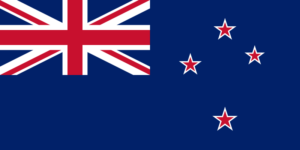AbroadBro Score: 7.5/10
The Good: New Zealand is known for its beautiful natural landscapes, friendly locals, and high quality of life. The country is a popular destination for adventure sports, such as hiking, skiing, and surfing, and it also has a strong education system.
The Bad: New Zealand can be quite expensive for international students, particularly when it comes to housing and transportation. The cost of living in bigger cities like Auckland and Wellington can be quite high.
The Ugly: Very remote, very far. High Tuition fees. High organized crime.
Education Quality: New Zealand’s education system is highly rated, with many universities and polytechnics offering world-class programs in a wide range of fields.
Tuition Fees: Tuition fees for international students in New Zealand can vary depending on the program and institution. Generally, undergraduate programs cost more than graduate programs, and the cost of tuition can be quite high for certain fields, such as medicine and engineering.
Educational Reputation: New Zealand has a good reputation for its education system. The universities of New Zealand have a good reputation globally, and they have been consistently ranked among the top universities in the world.
Student Visa Regime: The student visa regime in New Zealand is considered to be quite strict, and international students are required to meet certain requirements, such as having enough funds to cover their living expenses and tuition fees.
Student Visa Extension: Students can extend their student visas by applying for an extension. The process is straightforward and can be done by submitting the application along with the required documents.
Student Immigration at the Airport: International students are required to go through immigration at the airport, and they will need to present their passports, visa, and other relevant documents.
Attitude Towards Students: New Zealanders are generally friendly and welcoming towards international students, and they are willing to help and support them as they adjust to life in a new country.
Post-study Job Opportunities: International students are eligible to apply for a post-study work visa after completing their studies, allowing them to stay and work in New Zealand for a certain period of time.
Post-Study Citizenship for International Students: International students may be eligible to apply for permanent residency or citizenship in New Zealand after completing their studies, depending on their qualifications and work experience.
Income/Expensive Ratio: From an international student perspective, New Zealand offers a relatively affordable cost of living compared to other developed countries. The income-to-expense ratio is quite balanced, allowing international students to comfortably live and study in the country. However, certain items such as housing and transportation can be expensive in larger cities like Auckland and Wellington.
Job Market: The job market in New Zealand is relatively stable and offers a wide range of opportunities for international students. Many students work part-time while studying to supplement their income, and there are also opportunities for internships and graduate-level employment. However, competition for jobs can be fierce in certain industries, particularly in the major cities.
Minimum Wages and average salary: The minimum wage in New Zealand is currently $18.90 per hour, and the average salary is around $52,000 per year. These figures can vary depending on the industry and location, with higher wages typically found in larger cities and in highly skilled industries.
Local Language Difficulty: The official languages of New Zealand are English and Maori, and English is widely spoken throughout the country. For international students, the difficulty of adapting to the local language will likely not be a major issue.
English Language Adaptation: English is widely spoken in New Zealand, and most international students should have no trouble adapting to the language. However, students whose first language is not English may find it challenging to understand certain colloquial phrases and accents.
Racism: New Zealand is a culturally diverse country, and racism is not widely tolerated. However, as with any country, there may be instances of racism and discrimination. International students should be aware of this and report any incidents to the appropriate authorities.
Natives Profile: The native population of New Zealand is primarily of Maori and European descent. There is also a significant population of Pacific Islanders and Asian immigrants. The population is generally friendly and welcoming to international students.
Culture: New Zealand has a rich and diverse culture, with strong Maori and Pacific Islander influences. The country is known for its beautiful landscapes, outdoor activities, and friendly people.
Food: New Zealand offers a wide range of cuisine, with a focus on fresh, locally-sourced ingredients. Seafood, meat, and dairy products are common in the local diet, and there are also many international food options available.
Weather: New Zealand has a temperate maritime climate, with warm summers and mild winters. The country is known for its changeable weather, so international students should be prepared for all seasons.
Housing: Housing in New Zealand can be expensive, particularly in larger cities like Auckland and Wellington. International students will likely have to budget for accommodation and may need to consider options such as sharing a house or apartment with other students.
Health/Medical: New Zealand has a publicly-funded healthcare system, which international students are eligible to use. However, students should be aware that they may need to pay for certain services and medications.
Public Transportation: Public transportation in New Zealand, particularly in larger cities, is generally reliable and affordable. However, transportation options may be limited in more rural areas.
Police: The police in New Zealand are generally approachable and helpful. International students should familiarize themselves with local laws and regulations and contact the police if they have any concerns or need assistance

